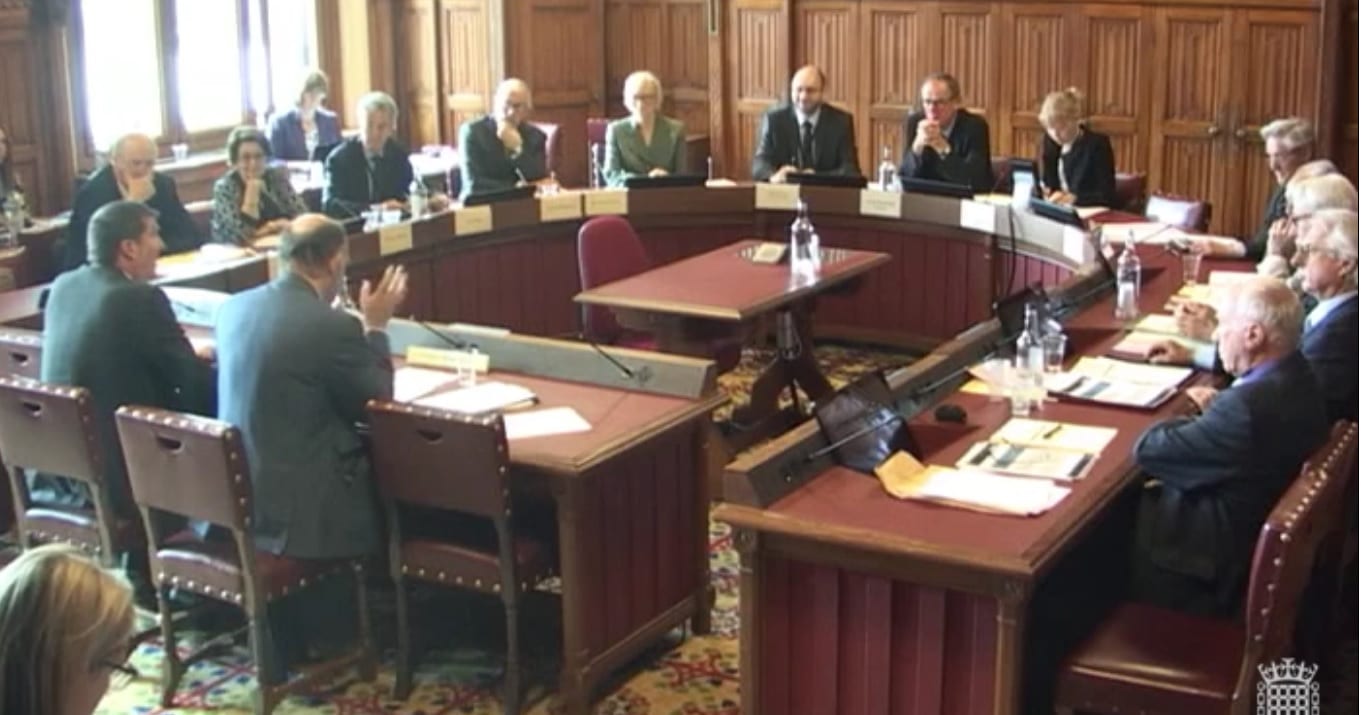UK energy and climate policy could be more susceptible to industry lobbying and a lack of investor confidence should it leave EU energy market and state aid rules, experts told the EU Energy and Environment sub-committee meeting on the impacts of Brexit on energy and climate policy this week.
Speaking to MPs on Wednesday, Michael Grubb, professor of International Energy and Climate Change at UCL, outlined the consequences of a ‘full Brexit’, including leaving EU State aid rules. These rules generally prohibit any form of support by a government that might allow a company to gain an advantage on a competitor.
If the UK is no longer subject to the EU’s state aid rules then this could present new opportunities for lobbyists, Grubb explained.
He said: “it increases one’s freedom of manoeuvre, to support certain kinds of industries looking for particular State support”.
Grubb continued, stating that “one then has a little less confidence as to what the UK is going for” which would have impacts on investor confidence, for example, “and may be more subject to lobbying pressures for State hand-outs.”
Dropping State aid rules could even allow lobbying for government hand-outs on projects like Hinkley Point C. The UK government previously had to significantly modify the terms of the project due to the EU rules.
And there are already many examples of the close relationship between the oil and gas industry and government, as seen for example, with its long-held relationship with BP. So, it’s likely this may increase once we’re out of the EU.
State aid rules had previously been criticised during the Brexit campaign by Energy Minister Andrea Leadsom.
“There is an area of energy policy where leaving could really help the UK bill payer,” she said. “And that is in getting away from the huge restrictions of EU State Aid rules.”
She continued: “We’ve seen only recently how help for our steel sector is subject to EU State Aid, making it not only difficult, but also painfully slow to save our steel!”
Post Brexit Energy Options
Grubb, along with Anthony Froggatt, senior research fellow at Chatham House, also gave examples of how other non EU European countries interact with Europe on energy.
Froggatt gave the example of Switzerland’s relationship with the EU and how it has spent a number of years unsuccessfully negotiating a bi-lateral energy deal with the EU.
He said that being totally out of the EU Energy Market may allow the UK to financially support projects like Hinkley Point C, but may leave it less able to exchange electricity with European neighbours.
Grubb envisaged a more Norwegian style arrangement with the UK remaining a part of the EU energy market – a body set up to ensure secure energy supply by fully integrating national energy markets and allowing the free-flow of energy between countries.
He said it “would have economic benefits, and political dis-benefits, with the UK subject to laws but no longer at the law-making table”.
Both experts suggested it was best for the UK to remain if possible, in the internal energy market post-Brexit.
The Need For Investor Certainty
Froggatt made clear the importance of reassuring investors in UK energy infrastructure, in low carbon development, and ensuring a smooth transition for carbon markets.
One example came after the Brexit vote, when Siemens froze new wind power investment until the outcome of referendum became clearer.
Another example given by Grubb was how referendum negotiations might cause a pause in the rollout of interconnectors – undersea cables which share electricity between Ireland, the UK and Europe that are the “amongst most reliable sources of electricity supply.”
The pair also expressed uncertainty over whether the European Investment Bank, currently a major investor in UK energy, would continue to invest in projects in a country that had left the European Energy Market, and which no longer sat on its board.
Indeed in a Parliamentary debate on Brexit, Energy and Climate Change on Tuesday, the now former Energy Secretary Amber Rudd said she was unable to confirm whether the UK would still be able to access loans from the bank.
Subscribe to our newsletter
Stay up to date with DeSmog news and alerts






